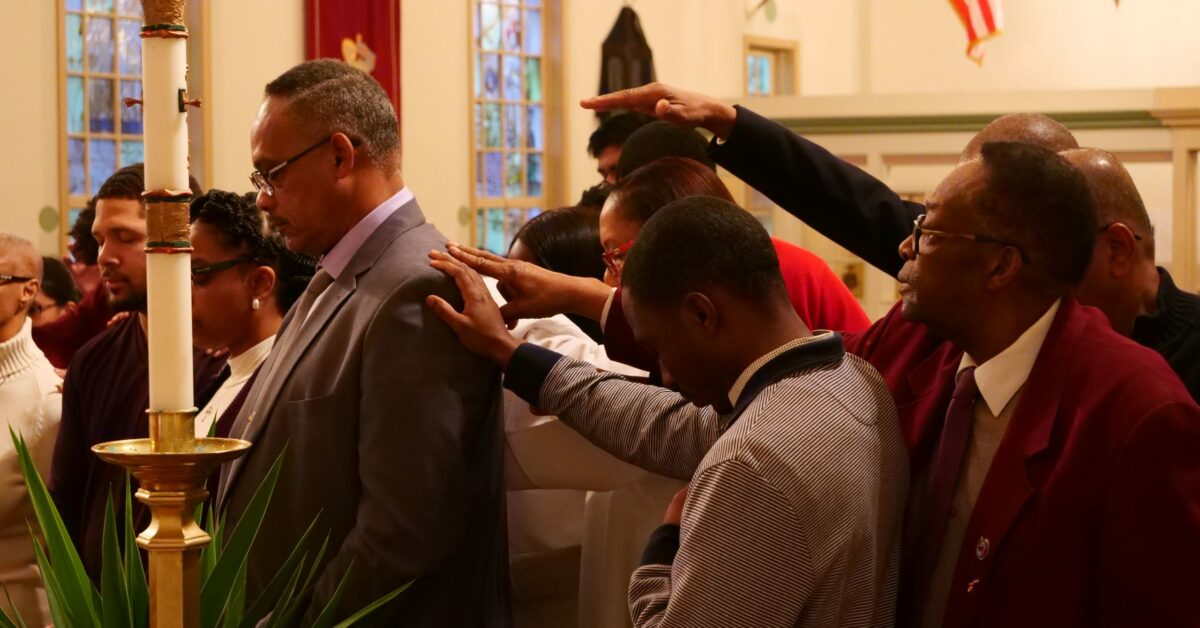A Christian Apprenticeship: Learning Faith and Practices from Others
Kent BurresonJournal Apprenticeship, Catechumenate
Inquirers into the Christian faith, having entered down the path toward changing their lives, commit to an intentional exploration of the Christian faith when they become catechumens and are accepted into the second stage of faith formation. Paul Galbreath in Leading through the Water (chapter 3) refers to this stage as the Preparation stage. It is preparatory in that it is seeking to prepare candidates for baptism and entrance into the church, although the formal acceptance of the desire to be baptized comes with enrollment into the third stage of enlightenment marked by the community’s election of the candidate.
Galbreath emphasizes that the preparation in this stage focuses on a corporate model of apprenticeship in the faith, rather than a hierarchical, noetic, individualistic notion of faith formation. Often, as he notes, we teach potential new Christians head knowledge, but make no effort to help them integrate faith with human life. We leave them on their own. We’d never take that approach with a child so why should we do so with adult-age children in the faith? Like any child, we should teach adults to learn the faith and the practice of the faith from the Christian community itself.
Such a corporate understanding of faith formation has significant implications for the catechumenate/preparation period. It approaches learning from a collaborative mindset with pastors, church workers, catechumenal directors, sponsors, and the catechumens themselves all committed to sharing life together and learning from one another what it means to live as a baptized child of God. In this collaborative model, mentors/sponsors pay a committed role in which they “study, work, pray, eat, and learn side by side” (Leading through the Water, 43) with their catechumens. Sponsors are Christians who make real the transformative power of the gospel.
The corporate model of the catechumenate also shapes a different leadership style in the congregation. Everyone in the Christian community has responsibility for those becoming Christians. Pastors and other church workers share the responsibility for formation with the catechumenal director, catechists, sponsors, and the entire community. As Galbreath argues, the focus is “on the life of Christian companionship . . . and the journey of discipleship . . . in congregational ministry and mission” (Leading through the Water, 44). In this regard the pastoral staff view themselves as fellow travelers with the catechumens and with all those shaping their formation in the Christian faith.
This collaborative approach means that catechumens are more than being taught knowledge. They are being apprenticed, formed toward faith, living a life of faith, serving others, and bearing witness to the world. Practices of the faith and apprenticeship in how to practice them are a central concern of the catechumenate. Opportunities to serve others in the church and in the greater community are planned and emphasized. This in turn has the effect of re-directing their priorities and values. Such embodied teaching embeds the faith in their very bones. And it creates honest, supportive conversation about the nature of the faith among pastors, catechists, sponsors and catechumens. In order to create opportunities for apprenticeship in the faith pastors are focused as much on training and molding catechists and mentors as they are in teaching/forming the catechumens.
As Galbreath rightly argues, “Mentoring disciples is a long process that rests on the foundation of baptism as a lifelong journey” (Leading through the Water, 54). It is a journey all of us are on together and together we form and teach one another to learn the faith and practice it.
